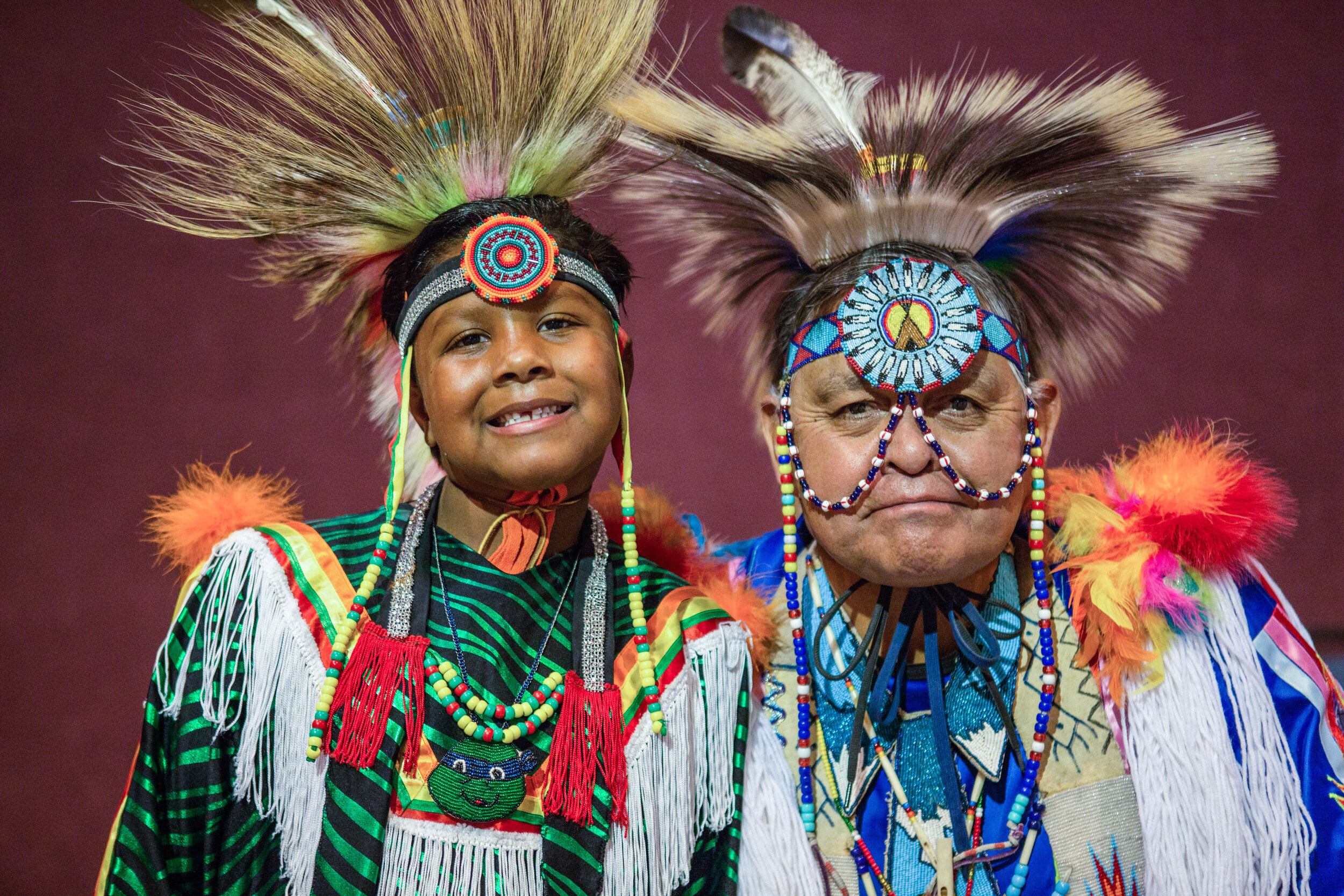
- Details
- By Levi Rickert
In late January, the National Indian Education Association (NIEA) sent a letter to former Acting Secretary Denise Carter of the U.S. Department of Education (DoE) and then Acting Attorney General James McHenry. The letter addressed the DoE’s intentions, as outlined in its January 28, 2025 communication titled "Ending Radical Indoctrination in K-12 Schooling," to reinforce parental authority and promote national unity through education policy. NIEA noted that the DoE planned to prohibit or revoke federal funding from institutions that support or promote “discriminatory equity ideology” in K–12 curriculum, instruction, teacher certification, or related programs and activities.
NIEA expressed support for local control of education, emphasizing that communities and parents are best suited to determine their children’s educational needs. It reaffirmed the importance of Tribal sovereignty in educating and protecting Indigenous children in ways that reflect and respond to community needs. NIEA welcomed the opportunity to collaborate with the Trump Administration on the development of the Ending Indoctrination Strategy, especially regarding curriculum standards, teacher certification, and professional development. NIEA maintained that Tribal histories and cultures should be included in public school instruction with guidance and approval from Native Nations, parents, and state legislatures.
The NIEA outlined several key principles for honoring Tribal sovereignty and the federal trust responsibility in Indian education:
- Appoint Tribal representatives to national education task forces to advocate for the nearly 650,000 American Indian, Alaska Native, and Native Hawaiian students enrolled in public schools.
- Support ongoing bipartisan efforts by Native Nations and state legislatures to enact and implement tribal history education laws. Currently, 13 states require K–12 schools to teach Native Nations’ histories, reinforcing their vital role in U.S. history and cultural identity.
- Recognize the sovereign authority of Native Nations in determining and managing their local educational programming.
Although focused primarily on K–12 education, NIEA also voiced concerns about the broader implications of the Administration’s Dear Colleague Letter to higher education institutions, which equated DEI and diverse curriculum with “Marxist ideology.” NIEA noted that such framing could negatively impact the treatment of Indigenous students in higher education, grouping them with other marginalized populations without regard for their unique political status.
On April 25, 2025, the DoE responded to NIEA, clarifying its position. It affirmed that American Indian, Alaska Native, and Native Hawaiian histories are not considered part of DEI or Critical Race Theory (CRT) and will not be treated as such. The Department expressed its commitment to “returning education to States and Tribes” and acknowledged the distinct political and legal relationship between tribal nations and the U.S. government.
The response confirmed that statutory grant programs serving Native students will continue and concluded with a commitment to ongoing consultation with Indian Tribes, Alaska Native Villages, and Native Hawaiian Organizations, in accordance with the federal trust responsibility and principles of Tribal sovereignty.
While the correspondence between the NIEA and the Department of Education related to K-12 students, Cheryl Crazy Bull, President and CEO of the American Indian College Fund says the conclusion expands higher education.
“It affirmed what we know is true of the federal government’s consideration of Native people—who are citizens of sovereign Native nations who have a legal relationship with the United States government and are not considered to be not members of ethnicities or races,” Crazy Bull said. “We remain committed to the respect and consideration of the right of all Americans from different backgrounds to access a higher education for a stronger, more dynamic nation, while we steadfastly defend our political identities, cultures, and languages as Indigenous peoples.”
More Stories Like This
Hanging a Red Dress for Christmas: MMIP, Native Higher Education, and Hope for a Better New YearNative Students Can Win $5,000 Scholarship, International Distribution in Pendleton Design Contest
American Indian College Fund Raises Alarm Over Plan to Shift Native Programs Away From the Dept. of Education
MacKenzie Scott Foundation Gives $5 Million Contribution to Little Priest Tribal College
Tribal Leaders Push Back on Dismantling of U.S. Department of Education
Help us defend tribal sovereignty.
At Native News Online, our mission is rooted in telling the stories that strengthen sovereignty and uplift Indigenous voices — not just at year’s end, but every single day.
Because of your generosity last year, we were able to keep our reporters on the ground in tribal communities, at national gatherings and in the halls of Congress — covering the issues that matter most to Indian Country: sovereignty, culture, education, health and economic opportunity.
That support sustained us through a tough year in 2025. Now, as we look to the year ahead, we need your help right now to ensure warrior journalism remains strong — reporting that defends tribal sovereignty, amplifies Native truth, and holds power accountable.
 The stakes couldn't be higher. Your support keeps Native voices heard, Native stories told and Native sovereignty defended.
The stakes couldn't be higher. Your support keeps Native voices heard, Native stories told and Native sovereignty defended.
Stand with Warrior Journalism today.
Levi Rickert (Potawatomi), Editor & Publisher


